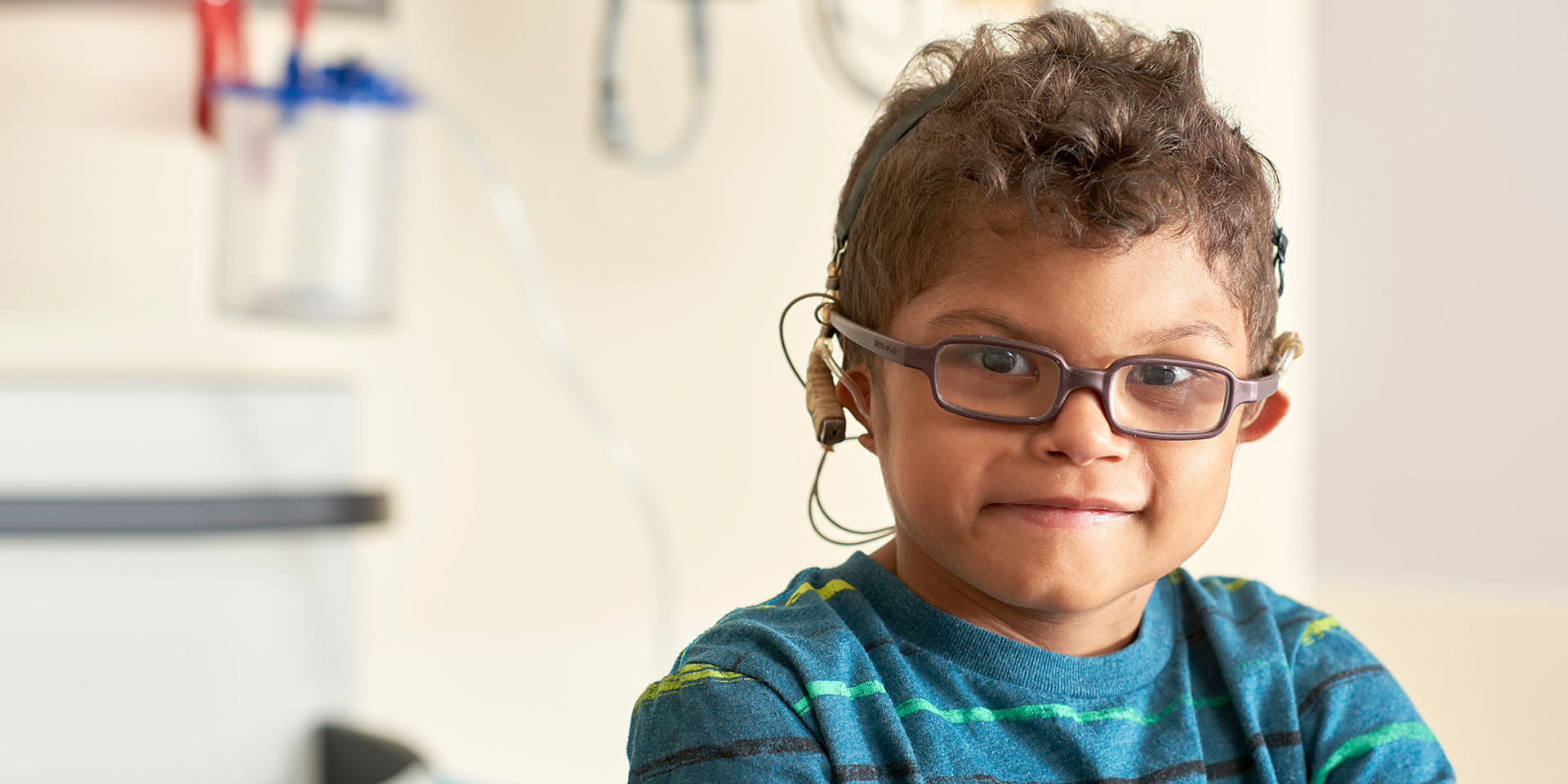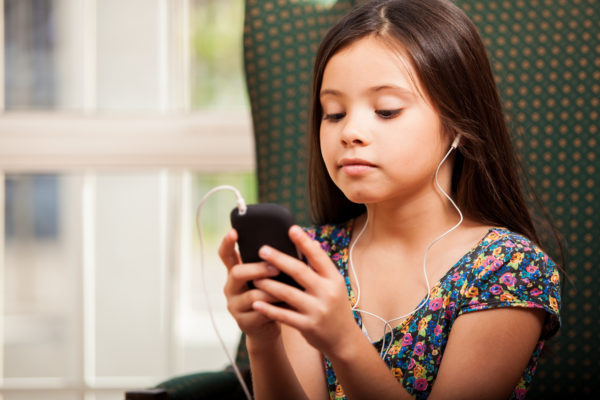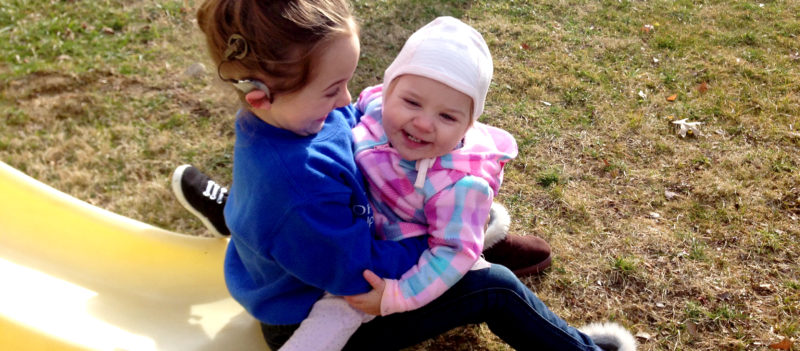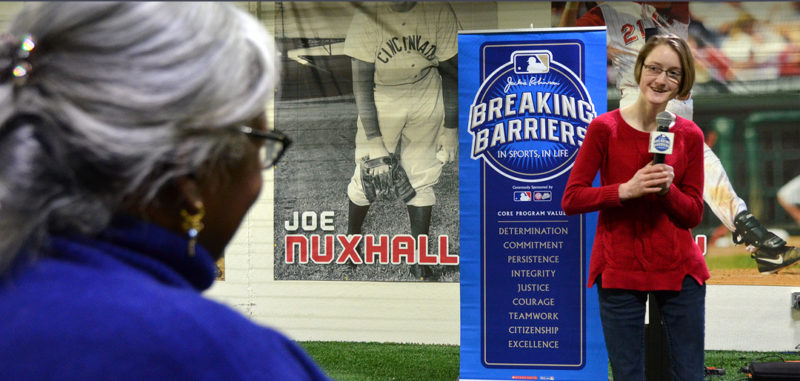If you’ve ever been concerned about your child’s hearing, you’re not alone. Hearing loss is not uncommon in children. In fact, around one in five kids have some form of hearing loss – conductive or sensorineural. The good news is that children of all ages can have their hearing tested, and in the vast majority of kids with hearing loss, there is a treatment available to help.
When To Get Your Child a Comprehensive Hearing Test
When parents are concerned about their child’s hearing, they wonder when they should seek further evaluation from an audiologist. The simple answer is, whenever you’re worried. We often see newborns and kids after they have failed a screening test at the hospital or pediatrician’s office. Other times we see kids because their parents think they might not be hearing well. We suspect kids may have hearing loss when they:
- Newborns: Don’t have a startle response to loud noises; don’t change their demeanor when they hear their mother’s voice.
- Toddlers: Don’t respond to their name; don’t turn their head to the TV; don’t recognize when their parents are speaking; aren’t meeting speech and language milestones.
- School age and older: Don’t hear their teacher; don’t respond when you call them from another room; have difficulty with academics and speaking clearly.
Types of Hearing Tests Available
If you suspect your child isn’t hearing well, it’s important to seek a full evaluation with an audiologist. This is because the risk of not hearing well is too great. When kids have hearing loss, their speech and language skills suffer. This can lead to academic issues, social problems, and lowered self-esteem.
Hearing tests performed by an audiologist are very different than screenings. The purpose of a screening is to determine if further evaluation is warranted, and it won’t pick up on mild hearing loss. However, a hearing test performed by an audiologist is more in-depth and can determine different things depending on the type of test. They can be categorized by age group:
- Newborns through six months: Auditory Brainstem Response (ABR) measures how well each ear can pick up sounds, as well as how well the hearing nerve sends information to the brain. Children are asleep for this exam.
- 10 months to around age three: Visual Reinforcement Audiometry (VRA) checks a child’s hearing abilities by observing their responses to sounds and then giving them visual reinforcement in a sound booth. Parents usually assist with this type of testing.
- Two to five years of age: Conditioned Play Audiometry (CPA) uses games and toys to determine hearing sensitivity, as well as the type and degree of hearing loss.
- Five years and older: Pure Tone Audiometry is completed in a sound booth and is what you would expect from a hearing test. Kids are given a button or will raise their hands when they hear soft sounds. If a child cannot complete this it is very easy to transition to CPA, or even VRA if necessary, during the appointment.
Treatments Available for Hearing Loss
If it is determined that your child has hearing loss, the good news is that there are treatments available to help. One of the following amplification devices can assist nearly all children with hearing loss:
- Bone conduction devices: This device can be worn differently depending on the type of hearing loss. It gently vibrates the bone behind the ear and sends sound directly to the inner ear. It is for children who have conductive or mixed hearing loss, chronic middle ear disease, or single-sided deafness.
- Cochlear implants: This device has two parts; one is surgically implanted within the inner ear and the other is worn behind the outside of the ear. It helps children with severe to profound hearing loss and allows them better access to sound.
- Hearing aids: There are many different types of hearing aids and they do not require surgery. They can enhance hearing and speech by amplifying and altering sound. They are typically used with sensorineural or conductive hearing losses and are changing all the time. With wireless technology and clear digital signals, they are leaps and bounds better than even 10 years ago.
In the rare case that your child has a condition which does not allow sound to get to the brain, there are other forms of communication that can help your child connect with others. Two examples include sign language and augmentative and alternative communication devices.
Hope For Hearing Loss
Your child is never too young for a hearing test, and there is always something we can do to help him or her connect to another human being! Hearing and/or relating to others is so important to a kid’s quality of life. There is much to be hopeful for – new research and technology in this field are constantly evolving. At Cincinnati Children’s, our audiology researchers are committed to developing novel treatments and technologies to better understand, identify and treat hearing loss.
To learn more about hearing tests and/or our Division of Audiology, please call 513-636-4236.






